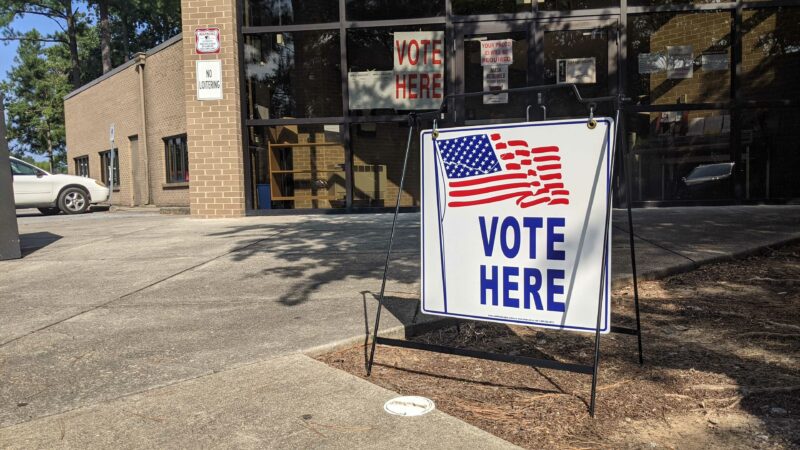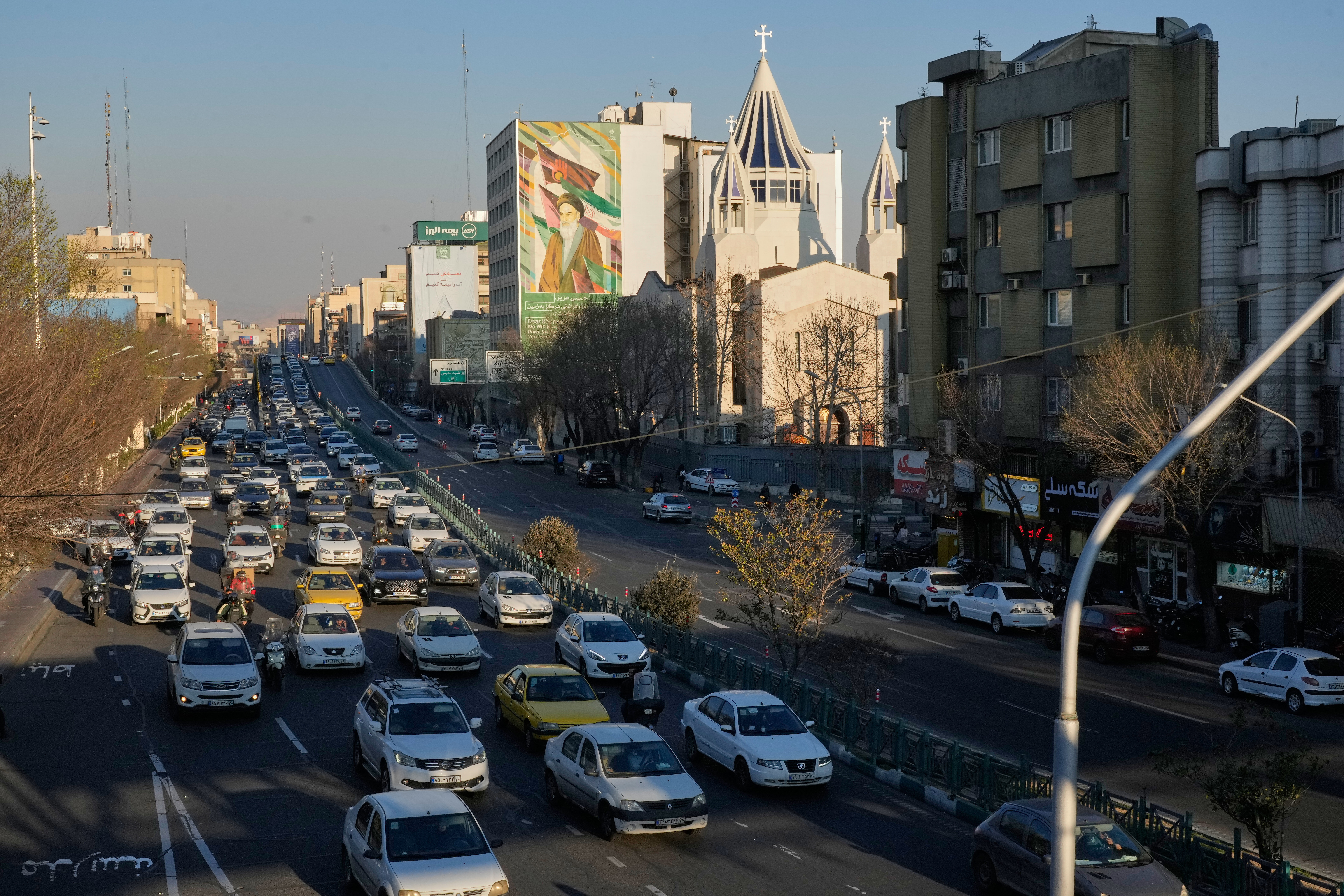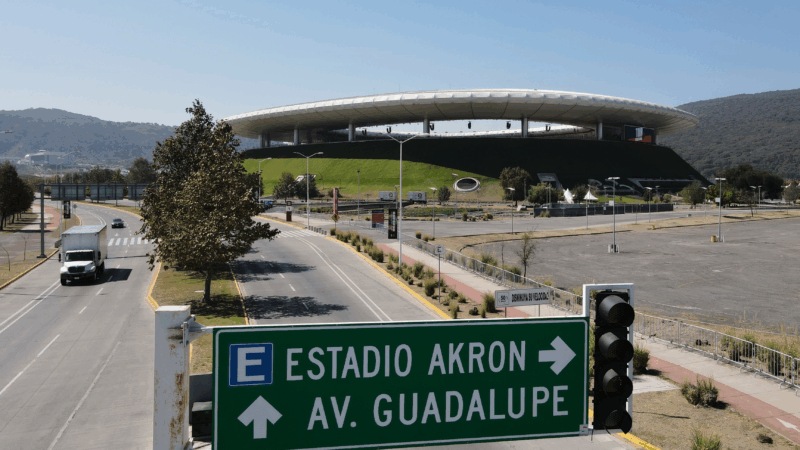Efforts to restore voting rights for people with felony convictions lag in the Gulf South
More people with past felony convictions can vote in the Nov. 5 general election than in past election cycles, but millions remain disenfranchised — with more impact in the Gulf South, a new report shows.
The national study from The Sentencing Project research and advocacy group quantifies the unequal toll of state-level voting restrictions for people with criminal histories.
In Alabama and Mississippi, at least one in 20 Black voters can’t cast a ballot because of a felony on their record, according to the estimates.
Most people disenfranchised by these rules aren’t currently incarcerated, but live in their community without the right to vote, said Ryan Larson, one of the report’s authors.
“They’re sending their kids to public education institutions, yet they don’t have a say in how local institutions are run for them,” he said.
In the Southeast, Larson said a combination of strict rules about who can vote and “punitive” justice systems “tend to bloat” disenfranchisement in the region.
Researchers estimated that in Alabama, 5.95% of the state’s voting-eligible population is disenfranchised by felony convictions — or more than 220,000 people.
By their numbers, Mississippi loses more than 3% of its potential voters because they have felonies, while Louisiana has more than 1%.
Almost all states have laws that restrict voting rights due to criminal convictions. Researchers found only Maine and Vermont to be the exceptions.
States variously ban people from voting based on their status of being in prison or on felony-level probation or parole. Several states, including Alabama and Mississippi, have rules that curtail voting after someone has completed their sentence.
Proponents of voting-rights restrictions for people with felony convictions say voting is a privilege and that the people involved haven’t shown respect for the law. Opponents say the restrictions strip people of a fundamental right and are rooted in racism.
The report estimates about 4 million people in the U.S. are barred from the polls by laws pertaining to felonies, a figure that’s dropped by nearly a third since the 2016 election cycle.
Researchers wrote that the decline is due to activity in some states to restore voting rights to people in prison, on probation or parole in recent years, as well as shrinking prison populations.
Nationally, the overall loss of potential voters from felony restrictions remains enough to have some effect on elections, Larson said.
“In certain states — more swing states, where elections are very close in terms of a partisan divide and where disenfranchisement may be higher — it certainly could have an impact,” said Larson, who is a criminology professor at Hamline University.
The report specifically highlights Florida, where its estimates say more than 950,000 people with a record are disenfranchised by felonies, despite attempts to restore voting rights in the state.
Pushes to restore rights for people affected by felony voting restrictions often make news in the Gulf South, as in Mississippi, where both a court decision and proposed legislation tangled with the issue this year.
In Louisiana, changes in the last decade expanded the right to vote for people with old convictions, such as those who have been on parole for more than five years.
Charles Amos, a formerly incarcerated organizer with Voice of the Experienced (or VOTE), says many people like him can register. He works to educate people about their rights.
“When we run across people who say, I’ve been convicted, [I say] so have I. Here’s how you can register to vote,” he said.
He says it can be challenging to convince people to take an interest in elections. Some tell him they think politicians will just do whatever they want, or that their vote doesn’t count.
But Amos describes being insistent on taking part in voting when he was released a couple of years ago after first being convicted in the adult system at 16 — too young to register.
“Before I could even become eligible, I was ineligible, because of a conviction,” he said.
After his release, he said voting made him “really feel a part of society.” He remains serious about political engagement, even running for a local seat with the Democratic party.
He didn’t win his race, but isn’t discouraged.
“I want to show guys who are formerly incarcerated, hey man — the world is ours. We just have to step into it,” he said.
This story was produced by the Gulf States Newsroom, a collaboration between Mississippi Public Broadcasting, WBHM in Alabama, WWNO and WRKF in Louisiana and NPR.
U.S. and Iran to hold a third round of nuclear talks in Geneva
Iran and the United States prepared to meet Thursday in Geneva for nuclear negotiations, as America has gathered a fleet of aircraft and warships to the Middle East to pressure Tehran into a deal.
FIFA’s Infantino confident Mexico can co-host World Cup despite cartel violence
FIFA President Gianni Infantino says he has "complete confidence" in Mexico as a World Cup co-host despite days of cartel violence in the country that has left at least 70 people dead.
Supreme Court appears split in tax foreclosure case
At issue is whether a county can seize homeowners' residence for unpaid property taxes and sell the house at auction for less than the homeowners would get if they put their home on the market themselves.
Top House Dem wants Justice Department to explain missing Trump-related Epstein files
After NPR reporting revealed dozens of pages of Epstein files related to President Trump appear to be missing from the public record, a top House Democrat wants to know why.
ICE won’t be at polling places this year, a Trump DHS official promises
In a call with top state voting officials, a Department of Homeland Security official stated unequivocally that immigration agents would not be patrolling polling places during this year's midterms.
Cubans from US killed after speedboat opens fire on island’s troops, Havana says
Cuba says the 10 passengers on a boat that opened fire on its soldiers were armed Cubans living in the U.S. who were trying to infiltrate the island and unleash terrorism. Secretary of State Marco Rubio says the U.S. is gathering its own information.







